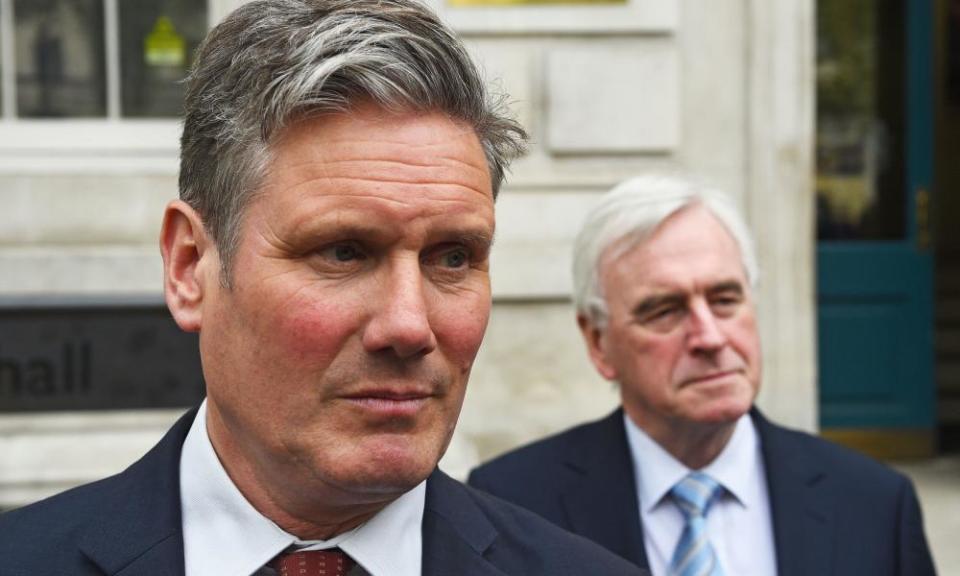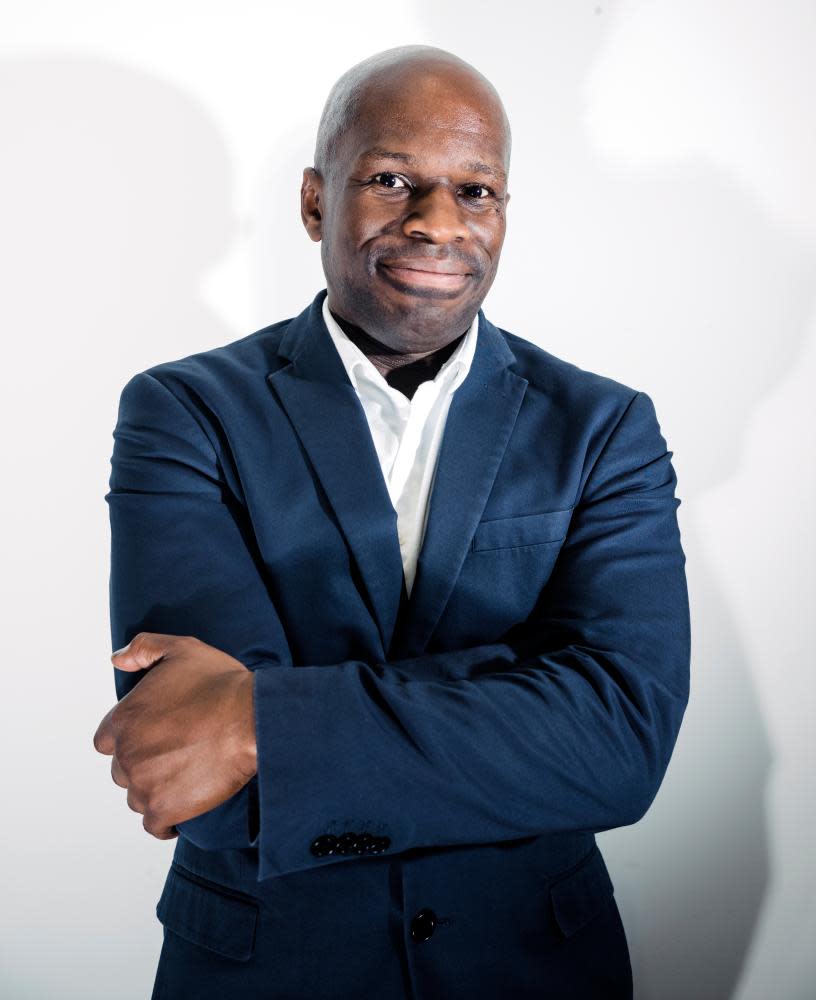If Labour’s leadership is hobbling internal candidates, is it fit to run a democracy?

Britain will almost certainly have a Labour government in two years’ time: you have the Tories’ unprecedented self-immolation to thank for that. Debating, then, how Rishi Sunak’s successors will govern is a democratic imperative. To some of Keir Starmer’s more zealous supporters, scrutinising the opposition is an act of treachery that simply makes a Tory government more likely. Welcome to “Schrödinger’s left”: where the left of the party is simultaneously so irrelevant and toxic that it must be marginalised, but so powerful it can help determine the result of general elections.
In his pitch for the Labour leadership, Starmer promised that under his watch the party would be a “broad church”, and that he would restore trust in Labour through “unity”. To underline that this wasn’t just empty rhetoric, he said that the selection of Labour candidates “needs to be more democratic and we should end NEC impositions of candidates. Local party members should select their candidates for every election.” To paraphrase Karl Marx, all that is a Starmer promise melts into air: but this particular issue has political consequences that go far beyond internal Labour politics.
This week, the former shadow chancellor John McDonnell wrote to Starmer about what he described as “mounting allegations about abuse and malpractice” during candidate selections – allegations that he said had already been raised with Starmer by multiple MPs. The allegations, he wrote, “are that selection procedures are being manipulated to prevent candidates being selected who are on the left, centre left or who may prevent a favoured candidate from having a clear run for a seat”. They include allegations that members did not receive the link to join online nomination meetings or were held in waiting rooms on Zoom until votes had been cast, and that some candidates were given privileged access to lists of members’ contact details in advance of others. He also claims that some candidates on the left were ruled out for “bizarre reasons”.
These allegations cannot easily be dismissed as simply the gripes of leftwingers sulking over defeat. Read the verdict of the former Channel 4 News stalwart Michael Crick, who argued that “it is increasingly clear that Labour’s election processes are unfair, and verge on corrupt,” adding that he also believed favoured candidates were given membership lists “long before others do, and so [could] start canvassing much sooner”.
Consider the case of 31-year-old Lauren Townsend, who had hoped to become the prospective candidate for Milton Keynes North. Here is exactly the sort of would-be MP the Labour party should be proud to encourage. Raised mostly by her single mother in the city, attending a local comprehensive in special measures, she came to the labour movement by working and organising in TGI Fridays. When management abruptly declared that some of their tips would be confiscated, Townsend led the struggle, recruiting 250 waiting and bar staff, and taking several days of strikes. They won. When local Labour councillors attending the pickets inspired Townsend to join the party, she went through a “baptism of fire”: becoming vice-chair of her local party, unseating a Tory in a council election, then being asked to join the council’s cabinet because of her obvious abilities. But frustrated about how councillors had their hands tied by decisions made at a national level, she decided to stand for parliament.

Union after union backed her, including Unison – far from diehard lefties. But after a regional Labour officer rang a senior council colleague to ask if Townsend could win, the party sent her a letter outlining concerns about her candidacy. After subjecting her to what she regarded as a hostile interview – including, she says, being shouted at – Townsend was sent a letter telling her she would not be longlisted.
Eventually, she was sent a dossier detailing social media activity that was said to preclude her from standing. Laughable doesn’t cover it: an entire section was dedicated to her “liking” tweets by people representing other parties, including Nicola Sturgeon expressing relief at a negative Covid test and a picture of a man pretending to cry over Matt Hancock’s resignation – because he happened to be a member of a small leftwing party. While the dossier included tweets critical of the Labour leadership – such as congratulating former shadow cabinet member Andy McDonald for his 2021 resignation over the party’s failure to back a higher minimum wage – there was no such ban on prospective candidates critical of Keir Starmer’s predecessor before 2019. Is Labour now a party in which criticism of the leader is forbidden? Where does this leave Starmer’s leadership pledge, I ask Townsend? “Well, it’s not a broad church, is it?” (When these, and the allegations made by McDonnell, were put to the Labour party, it said: “Selection processes for Labour party parliamentary candidates are properly administered in full accordance with procedures set by the national executive committee (NEC).” It added that the party doesn’t comment on individual cases.)
Consider, too, Maurice Mcleod, a black veteran anti-racism activist, journalist and Labour councillor. The chronic underrepresentation of black men in the parliamentary Labour party has been acknowledged from all sides, and Mcleod had a convincing shot at succeeding Harriet Harman in Camberwell & Peckham. Again, his liking of tweets by members of other parties – this time by the Green MP Caroline Lucas – was raised; but he was blocked partly because he mistakenly didn’t attend a vote on the International Holocaust Remembrance Alliance definition on antisemitism in 2018, despite making it clear in the selection interview that he believed the debate was settled.
It would be harder to argue that these requirements were factional if they were applied to everyone equally. Yet Darren Rodwell, a white council leader, has been selected to stand for Labour in Barking & Dagenham, despite once joking at a Black History Month event that he had “the worst possible tan for a black man”, adding: “I have the passion and the rhythm of the African and the Caribbean. I used to do swing dance, because I used to love jiggling about.” This candidate – supportive of the party leadership – was not barred.
Now, McDonnell has called for Starmer to appoint an independent organisation to scrutinise party selections, and for Martin Forde – the lawyer who recently issued a report into Labour’s abusive political culture – to investigate alleged abuse.
But there is a wider point here, too. Millions of Britons do support public ownership of utilities, a wealth tax and workers taking strike action – the platform, it must be said, Starmer himself stood on in the leadership election, and that these leftwing candidates represent. Must their values be excluded from British politics, from frontline Labour politics? And if this is the attitude of the Labour leadership towards its party’s internal democracy, what of its attitude to democracy in general when it has the chance to serve?
Owen Jones is a Guardian columnist

 Yahoo News
Yahoo News 